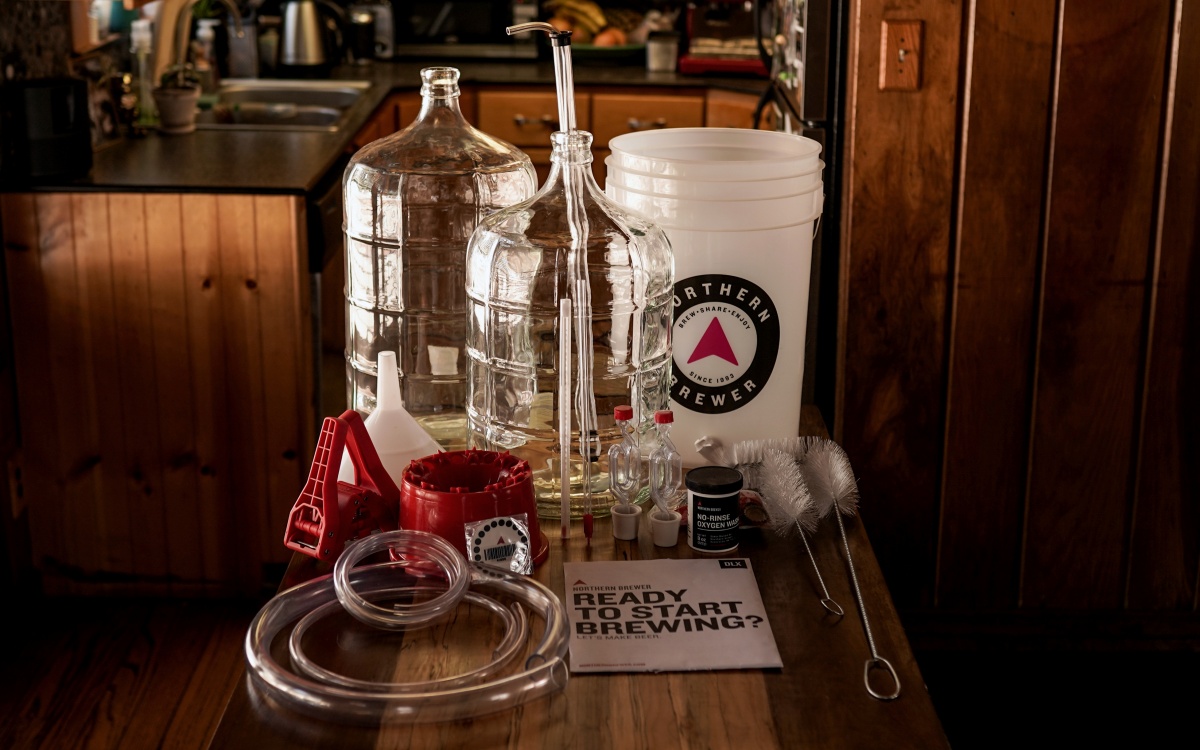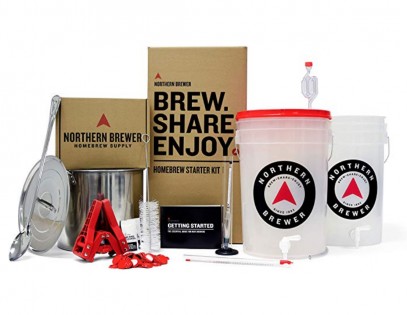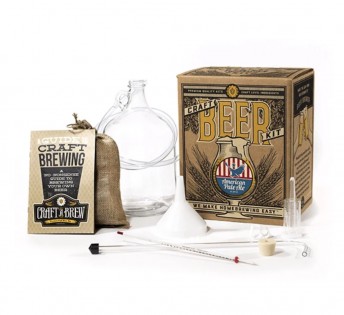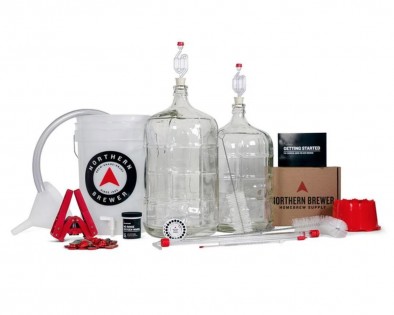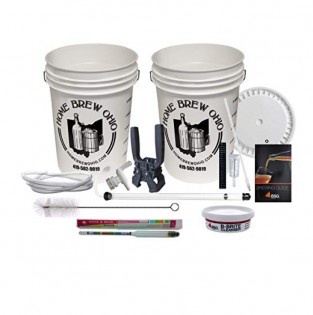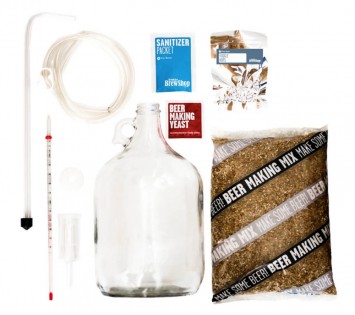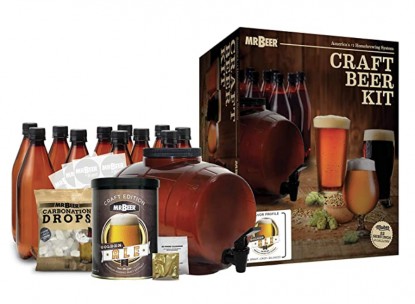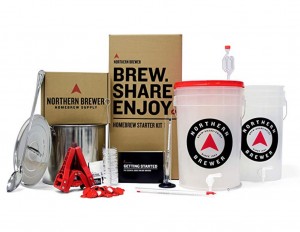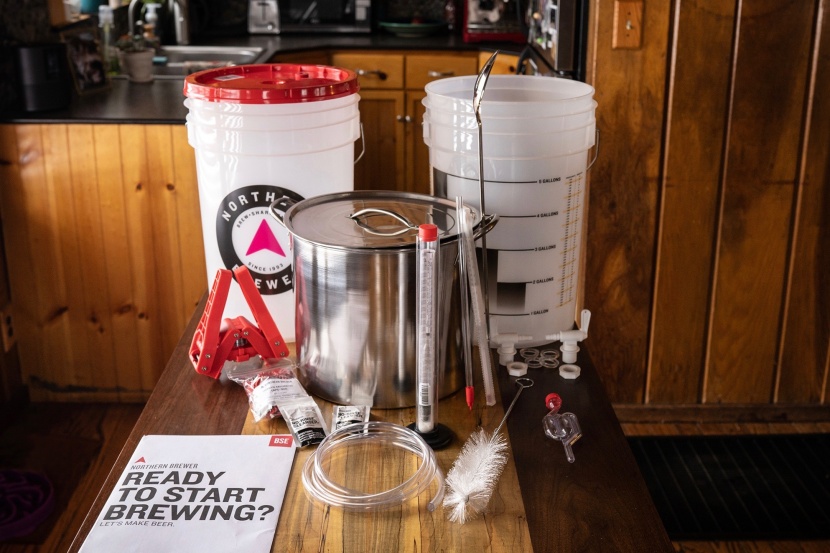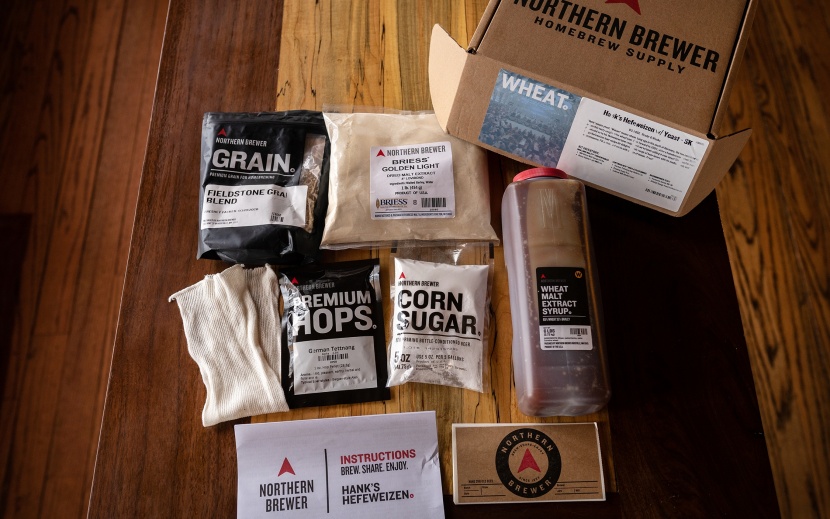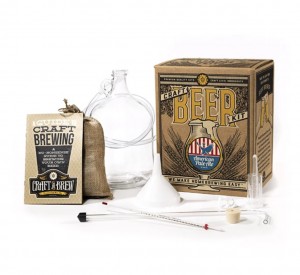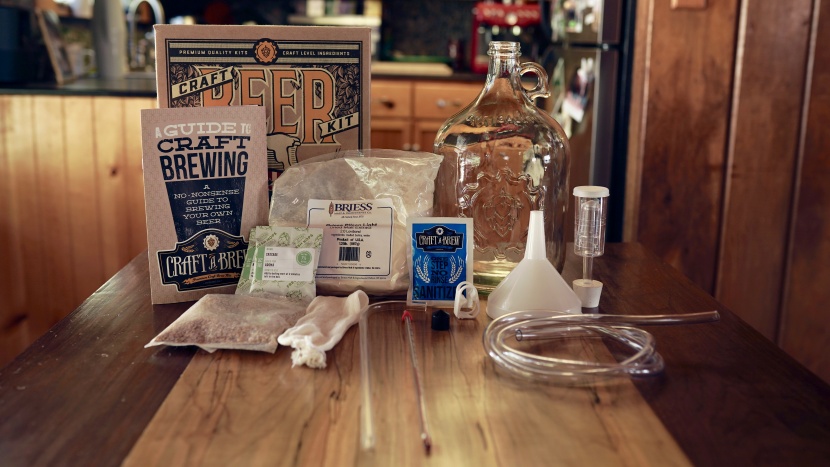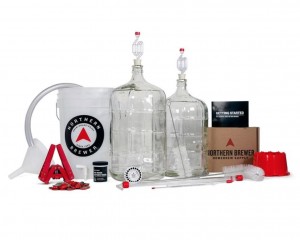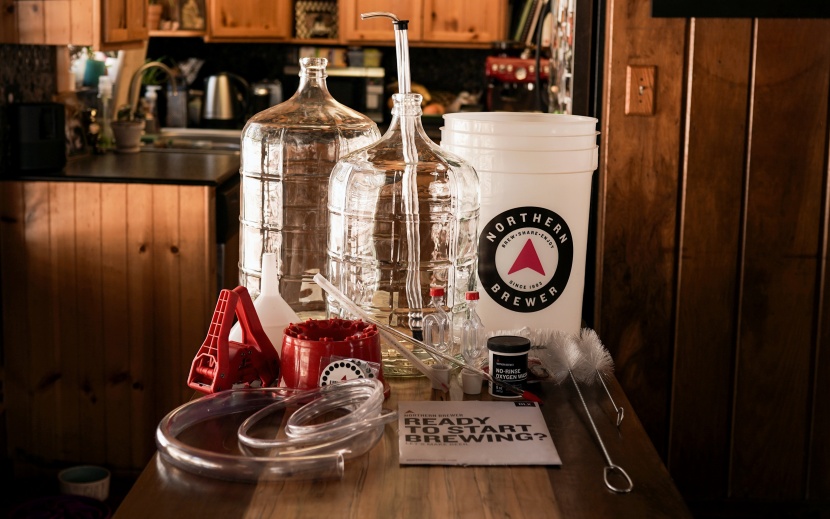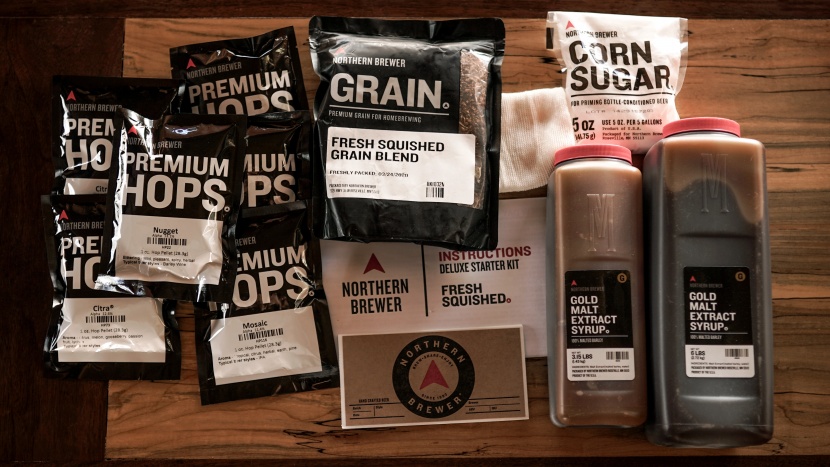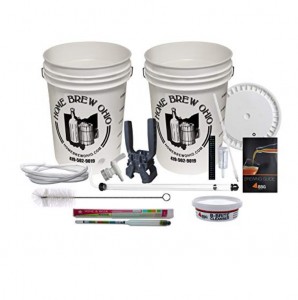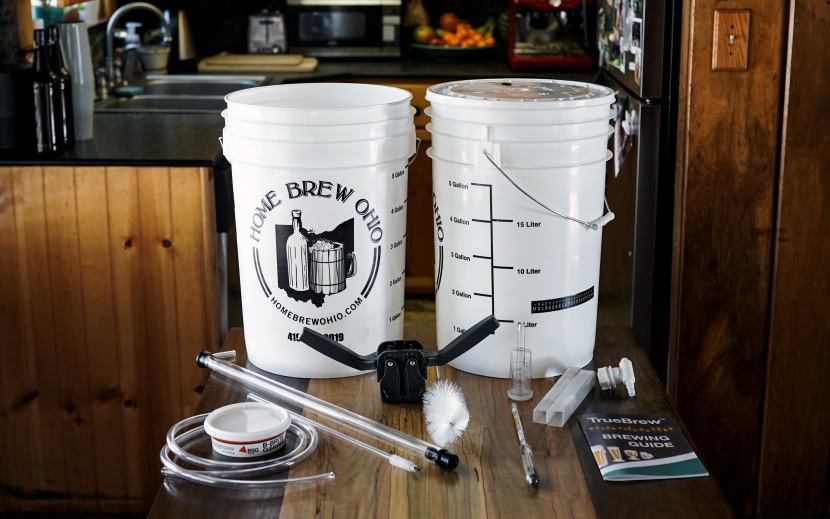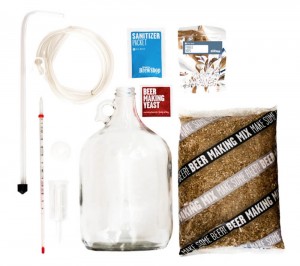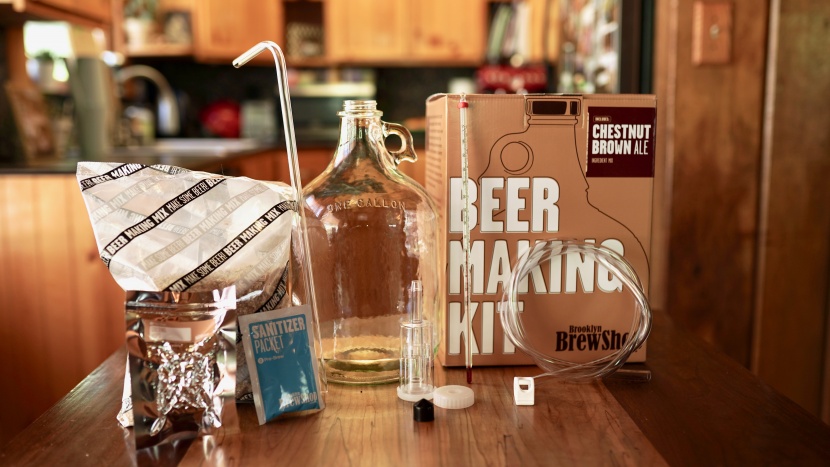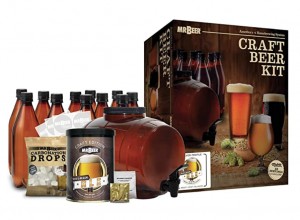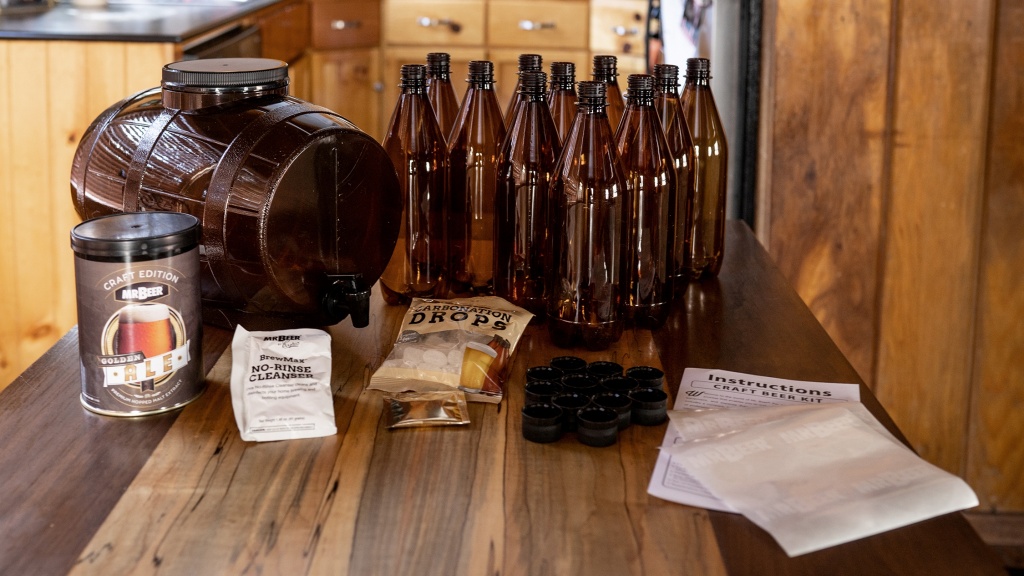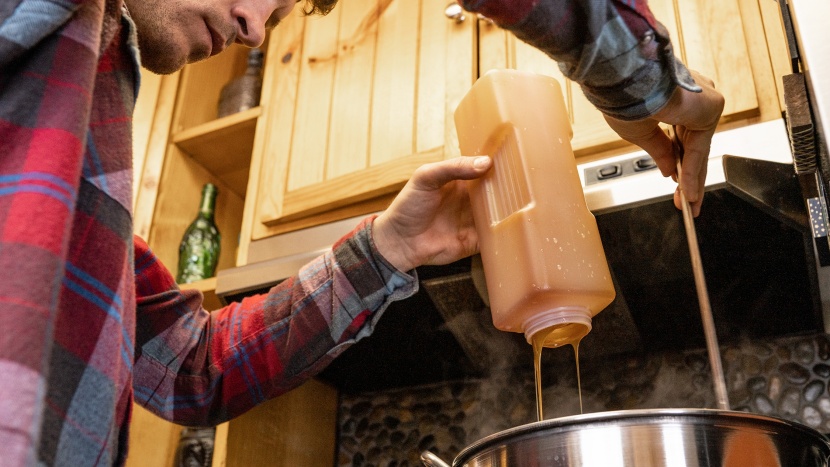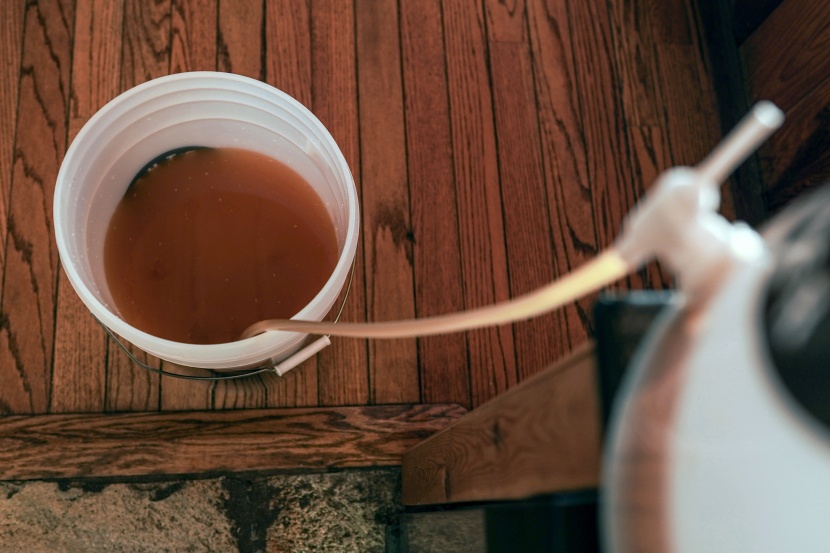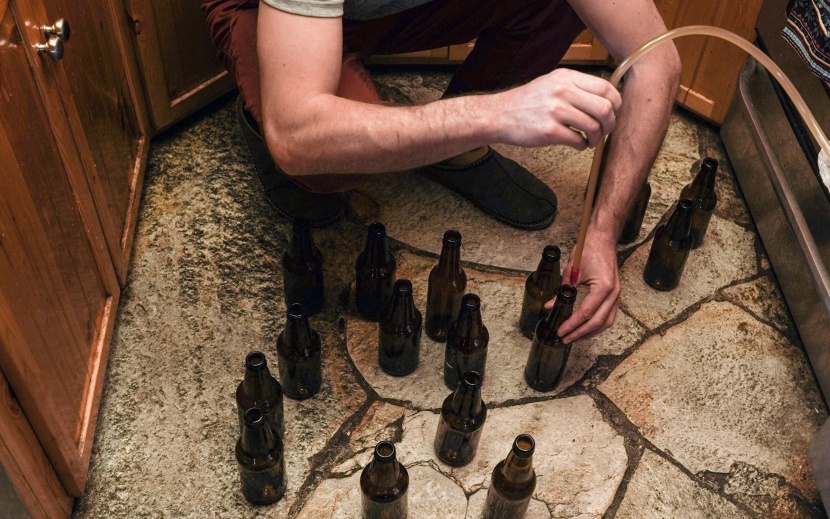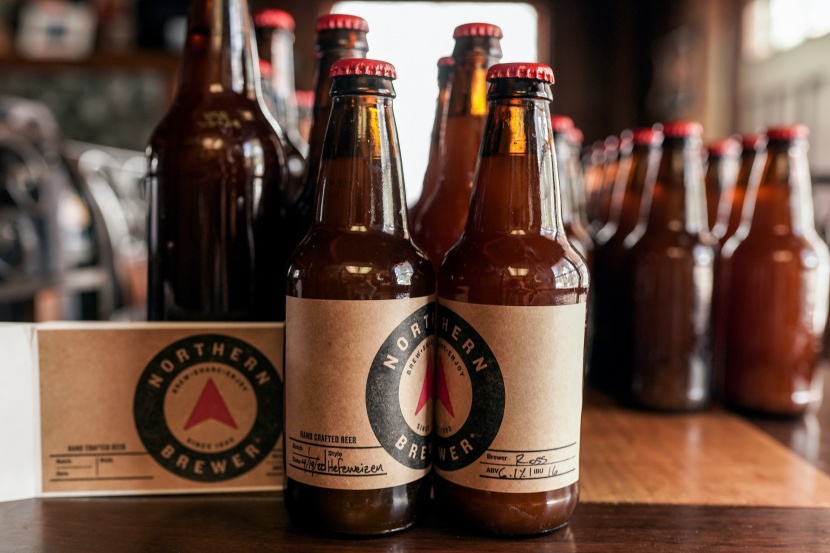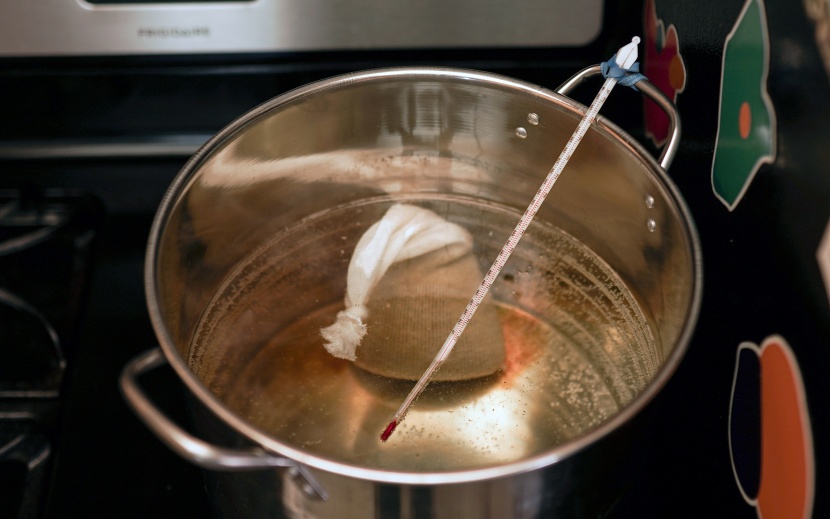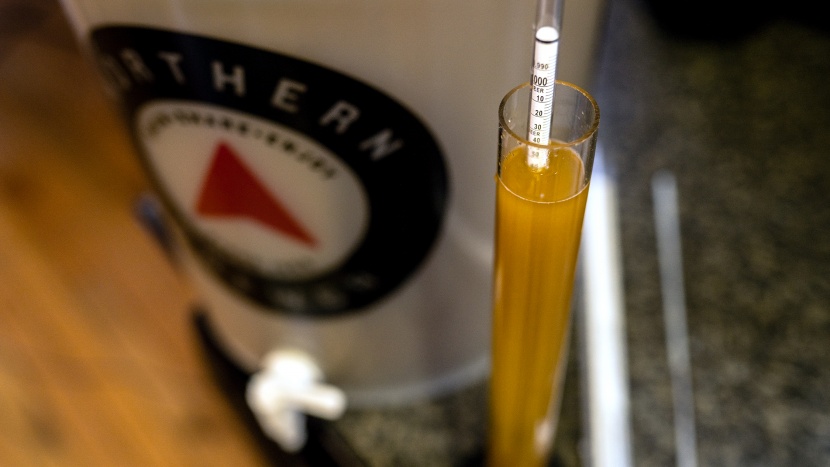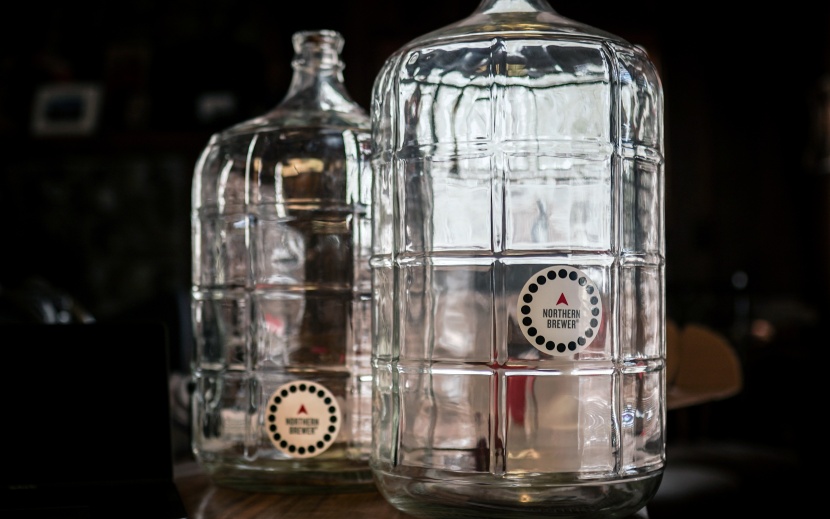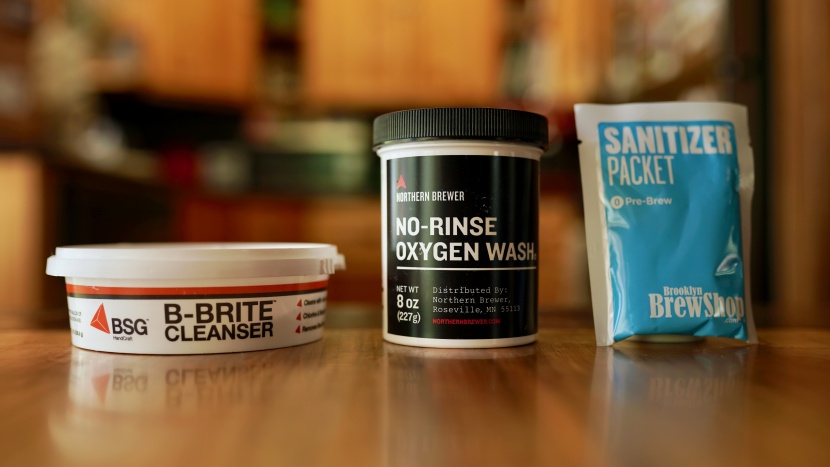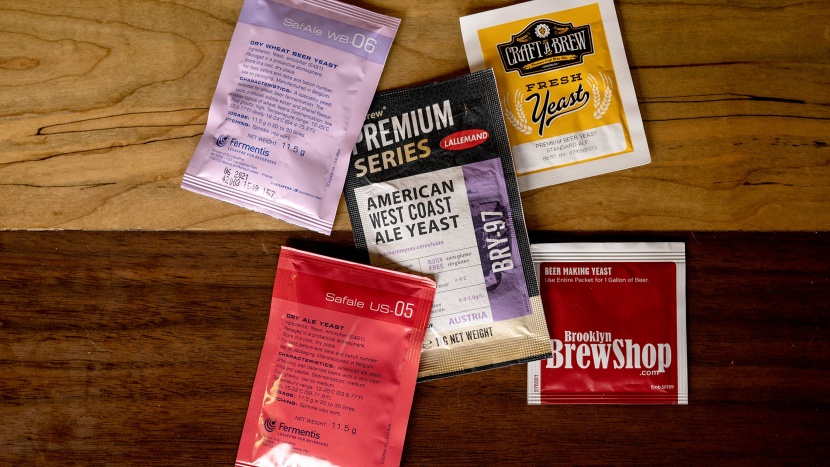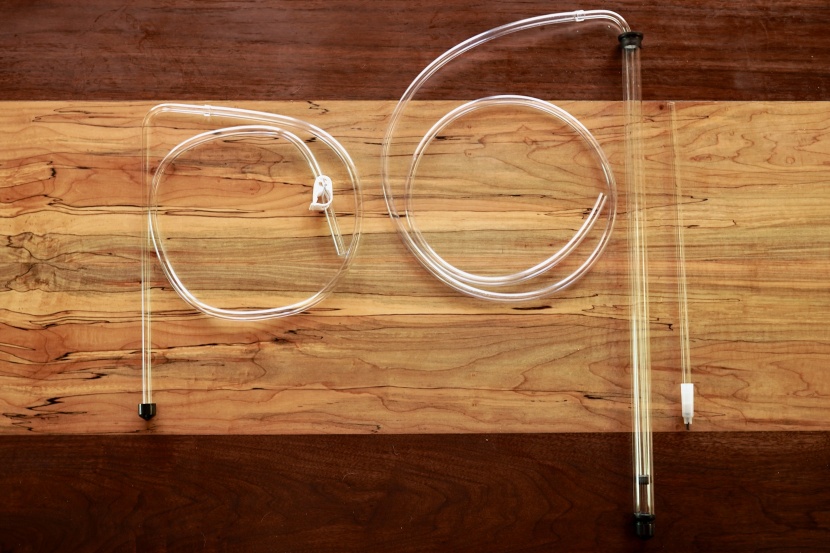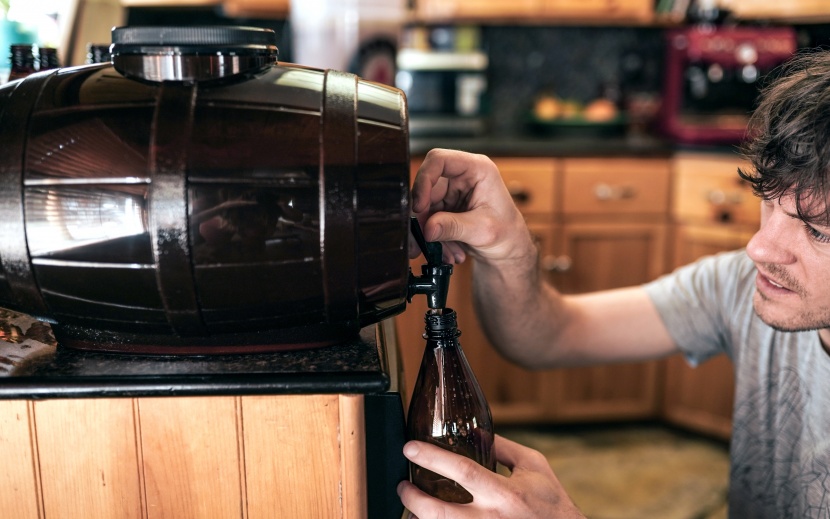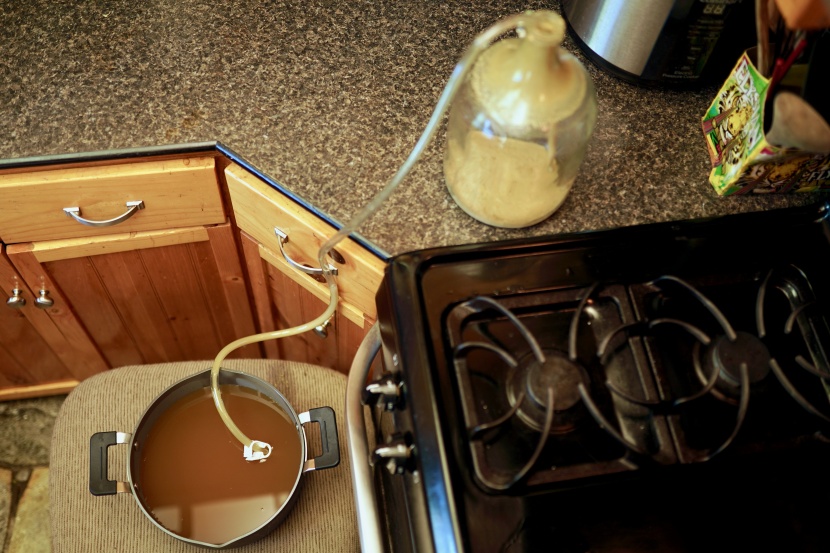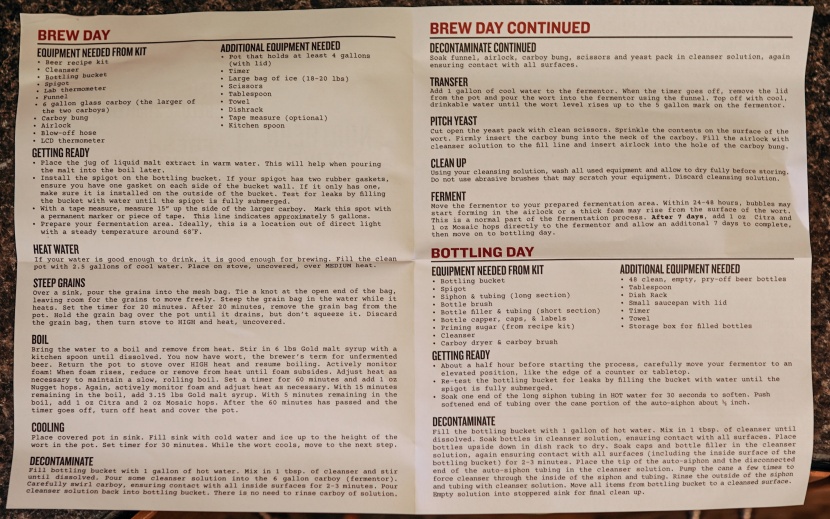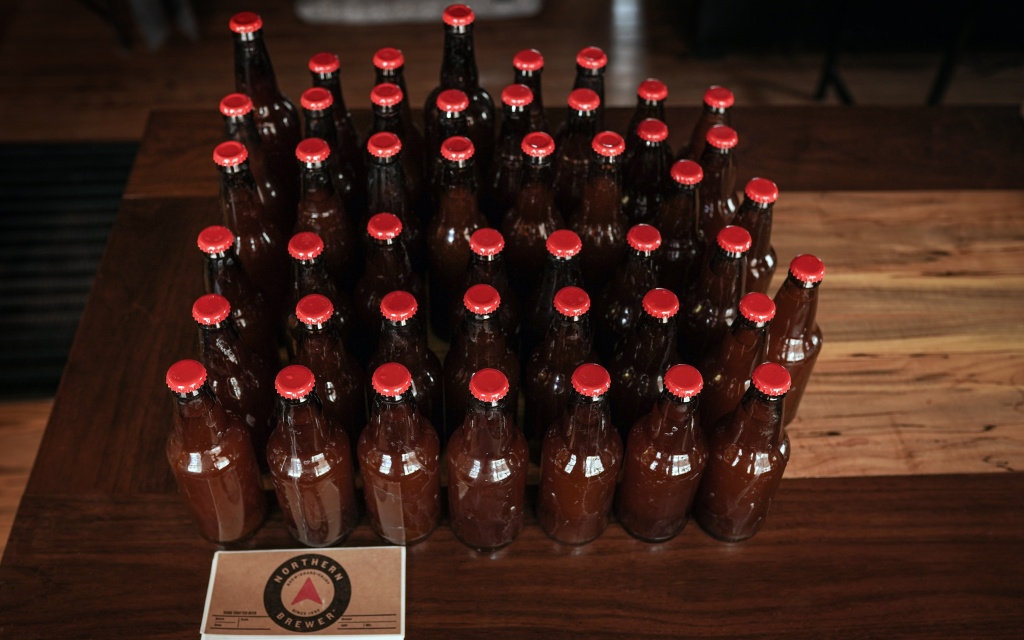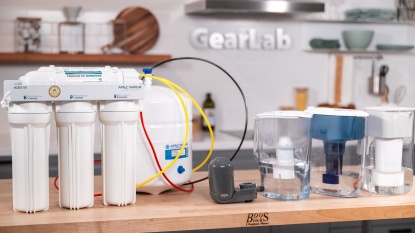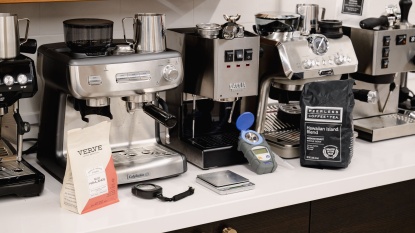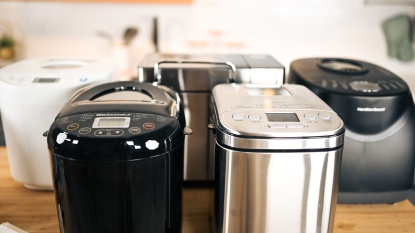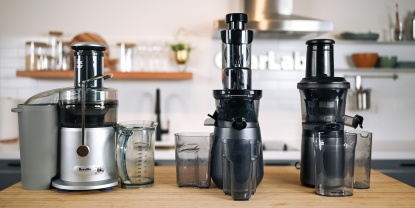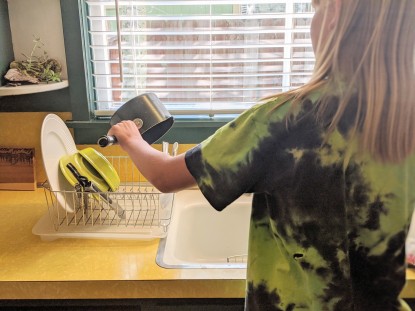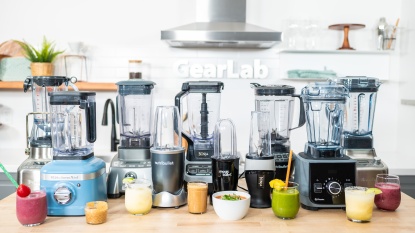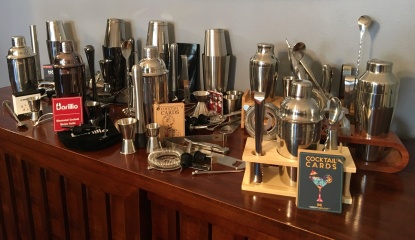Our experienced home brewers dug into the market's top options before buying and testing the 6 best home brewing kits head-to-head. We brewed and bottled a batch of beer with every model in our lineup, serving up IPAs, golden ales, German Hefeweizens, brown ales, and more. These kits are intended for those just getting into home brewing, so we checked which kits included everything you need and which required further purchases. We assessed the equipment's quality, and throughout each brewing process, we compared the ease of use and overall experience provided by each kit. After months of testing, we identify our top recommendations for you and your kitchen so you can join the world of home brewing.
The best beers start with the cleanest water, so it may be well worth your while to invest in a water filter in addition to your new brewing kit. Sanitation is also paramount, so you'll want to have a cleaning brush or pack of sponges on hand to help with cleaning up once you've bottled. And, of course, some new beer glasses to enjoy your fresh brew! If you enjoy imbibing, you will certainly be interested in the other wine & bar gear, extensively tested by our teams of culinary and beverage experts.
Our Top Picks
Best Home Brewing Kits
Batch volume: 5 gallons | Fermenter Type: Plastic bucket with lid
Northern Brewer has been the springboard for many new homebrewers getting into the hobby, and their Brew Share Enjoy Homebrew Starter Kit is the best package they offer for the majority of aspiring brewers. This kit includes everything you need to start brewing when you open the box. It's the only product we tested that comes with a five-gallon stainless steel kettle, which is essential for brew day. It also includes a hydrometer for measuring ABV (alcohol by volume), a high-quality no-rinse cleanser, a great auto-siphon, a handy, long spoon, and many other items. This kit comes with a few extract recipe options, and we chose the Hefeweizen. The ingredients are of notably higher quality than many lower-priced options we chose, like pre-crushed, fragrant grains with a mesh steeping bag, quality hop pellets, and name-brand yeast. The recipe instructions are clear and easy to follow, and this kit also has a booklet of general brewing tips. Our testers were impressed with the resulting beer from this kit and recipe. This kit includes plenty of caps, a bottle capper, and a bottle brush for the bottling side of things. You'll just have to supply the clean, empty bottles.
There's a lot to like with this kit, but there are a couple of caveats. While brewing in plastic buckets (with airlocks and leakproof spigots) is extremely common, some folks prefer to use glass, which is less permeable to air. Plastic is more susceptible to scratching, which could be tricky to sanitize, potentially allowing microscopic organisms to colonize in the fermentation chamber. Since limiting oxygen contact and non-yeast microbes with fermenting beer is a big priority, glass is superior in this aspect. However, many believe this permeability issue is overblown in importance when fermentation periods are less than two months, as is the case with the vast majority of homebrews. Plus, the plastic used here is very thick, and with care, you can avoid scratching it. Most brewers won't notice any difference, and we think this is a rather minor point. We were also a bit bummed that the kettle arrived with a greasy residue that we scrubbed for over 20 minutes to get clean. We're still psyched that this model comes with a kettle and everything else you'll need (besides bottles, heat, ice, and time) to brew some great beer. If you're looking for a starter model for brewing sizeable batches that are sure to impress, this kit is a fantastic option offered at a stellar price.
Batch Volume: 1 gallon | Fermenter Type: Glass carboy
The Craft-a-Brew Kit is an affordable entry into the home brewing game. We were surprised by what this product offers at such a fair price. The glass carboy fermenter is the star of this kit, but it also includes a pretty nice set of ingredients for your first brew. We opted for the Pale Ale option. The recipe hits the main steps of a traditional brew day, such as steeping grains, creating wort, 60-minute boils and timed hops additions. Some smaller kits oversimplify the process, which we think removes some of the fun; this model does not. It also comes with an informative booklet to help brew your first batch and many more down the road. The small one-gallon size is manageable, especially if you're working with limited space. Although it doesn't come with a kettle, you might already have a suitably sized one in your kitchen (we recommend a 1.5-2 gallon kettle to accompany this kit).
The batch size here might not appeal to you if you're looking to jump into home brewing in a larger fashion. And while the equipment set works, we cannot get behind the included siphon necessary for bottling, which we found frustrating to use. It can be used effectively, but we don't appreciate the learning curve, and we recommend upgrading to a better siphon. There's also no bottle capper, so you'll either have to purchase that separately or get some flip-top bottles, and the all-important yeast appears to be generic. The pale ale we made with this kit passes for a pale ale and encourages the brewing process, but it's not as refined as the Northern Brewer recipes. If you want to start small to ensure this is a good hobby for you, don't have space for a large setup, or just want a low-priced but legitimate option, the Craft-a-Brew Kit comes recommended by our tester team.
Batch Size: 5 gallons | Fermenter Type: Glass carboy
The Northern Brewer Deluxe Homebrew Kit is the best model we tested for those looking to jump headstrong into brewing great craft beer at home with a 6-gallon glass carboy for primary fermentation and a 5-gallon glass carboy secondary fermenter. Glass is considered superior in some ways to plastic, as it cannot be scratched as easily (which could create nooks for potential bacterial growth) and is less permeable to oxygen. Many home brewers prefer glass for long-term fermentation, such as lagers and complex sours, which often take several months or years in the secondary carboy. As a result, we like this kit for its versatility in handling short- andlong-term fermentation. As with the other Northern Brewer kit we tested, the extract recipe and included ingredients are top-notch. We actually like the recipe kits offered with this Deluxe model a bit more, as they are more complex. We went with the Fresh Squished IPA option, and it turned out fantastic. In many areas, this kit is simply a step above other options tested in many areas.
The biggest drawback of this model is the price. Not only is it one of the more expensive kits available, but it doesn't include a kettle, so you'll need to get one (five gallons or larger) and perhaps a long stirrer. And while we are fans of the glass carboys, they are also more difficult to handle and clean through their small opening, more fragile, and take up more room when stored because they aren't stackable. This kit also lacks a few extras, as there's no hydrometer, kettle, or stirring spoon. If you're all in for home brewing, though, and want a high-quality kit with glass fermenters that are arguably better for months of lagering, the Northern Brewer Deluxe Kit delivers.
Batch Size: 5 gallons | Fermenter Type: Plastic bucket with lid
Another option is the Homebrew Ohio Maestro Kit. It contains almost all the equipment you'll need to brew big batches of beer. The 6.5-gallon fermenting and bottling buckets are made of thick, seemingly high-quality plastic. The included auto-siphon is great, although not unique to these large kits. Extra sanitizer is included, but it isn't no-rinse, like that which comes with the Northern Brewer kits.
Compared to the other 5-gallon kits we tested, this model is the least complete. You'll need a kettle, long stirring spoon, and bottle caps. Most critically, this kit lacks a thermometer. While buying one separately is a small cost, we were surprised that this essential piece of equipment wasn't included. And while there is a hydrometer (for measuring specific gravity and calculating alcohol content), there is not a testing jar (like a 250 mL graduated cylinder), so you'll have to buy that before you can use this nifty tool. And while this kit costs less than most other 5-gallon kits on the market, it doesn't come with a recipe kit, which every other model tested does. Lastly, the bottle capper broke a handle before we completed bottling the beer from our first batch, so we had to use the one from the Northern Brewer kit to finish up. This is a usable kit, but the necessity to purchase several additional materials keeps it from being a top recommendation.
Batch Size: 1 gallon | Fermenter Type: Glass carboy
The Brooklyn Brew Shop Kit is very similar to the Craft-a-Brew model we tested, with a few small differences. We like the latter option a bit better, but one impressive feature of the Brooklyn Kit is the sheer number of recipe options you can choose from when ordering this model, more than you can get with any other kit. We elected the Chestnut Brown Ale option, but many more choices exist. Another aspect we love is that the included recipe is a partial-mash kit, which adds a level of complexity and involvement in the brewing process. We really dig that.
The advantage of the many recipe options is limited to your first batch. Subsequent batches, of course, are up to you, choosing from various recipe manufacturers or from an ingredient list of your own creation. We were excited to try the brown ale, with unique touches like roasting nuts to add flavor and using honey instead of table or corn sugar (more typical in most kits). However, the resulting beer was over-carbonated and lacked the flavor some of our testers desired. We don't think the screw cap for the glass carboy is as good as the rubber stopper on the Craft-a-Brew kit, the latter of which is more airtight. This model also has a generic yeast packet and a siphon that we recommend replacing immediately. And while we appreciate saving paper, the online-only instructions forced us to keep a computer or phone close to the brewing process, which is often a messy affair. We also found the instructions to be less clear than others. We don't have a problem recommending the Brooklyn Brew Shop option to a friend looking for a small batch kit, but more as a backup if the Craft-a-Brew isn't available.
Batch Size: 2 gallons | Fermenter Type: Plastic barrel
If you want to spend the least amount of time turning a few ingredients into beer, the Mr. Beer 2 Gallon Kit might be a suitable option. This model simplifies the brewing process, reducing the time and effort required. While this made us less confident the end result would satisfy us, we were pleasantly surprised that the golden ale turned out pretty good — decent enough that we even served it to a few friends. This model comes with plastic bottles, and combined with the spigot on the fermenter, bottling is quick and easy.
We don't find using this kit representative of the whole home brewing process. Yes, you must boil water in a kettle (not included) and add ingredients. But, in the case of this kit, the malt extract, sugars, and hops are all in a can you just dump in at once. Not very involved. You can find replacement two-gallon recipe kits, but the market has many more options and styles in one-gallon and five-gallon kits. Also, this kit introduces more opportunities for contamination than any other model tested. Sanitation is crucial to avoiding off-flavors and ruined batches. The fermenter here is not airtight, meaning some microbes could work their way inside along with a steady supply of oxygen (also responsible for off-flavors). It's also tough to clean and very thin plastic. We don't think this is the right option for someone wanting to learn much about homebrewing or to find a long-term hobby. Instead, it's a fun gift that doesn't cost much for quick and pretty tasty beer production.
Why Trust GearLab
Our search for the best home brewing kits started by investigating the market's most popular and top-performing options. We used our brewing experience to help identify the most promising to buy and bring into our kitchen for rigorous side-by-side testing. We created several metrics to evaluate each model across, including kit completeness, the quality, and usefulness of the equipment, how much the kit contributes to the overall brewing experience, and how easy each model is to brew with. We brewed a full batch of beer with each model, resulting in 19 gallons of beer, which we bottle conditioned until the beer was ready. Finally, we had a panel of beer enthusiasts try each brew and provide feedback on the outcome.
Our lead tester is Ross Robinson. Ross has been brewing beer recreationally for five years. He brings a perspective to this review that offers lots of experience in brewing successes (and a few failures), yet also remembers what it's like to shop for a kit to brew that first batch of bubbly golden goodness. He's brewed over 15 different styles of beers in his beer-making history, some being repeated multiple times to tweak recipes to his specific liking. He's enthusiastic about beer, which his friends know and certainly appreciate every few months when a new batch turns out. His most recent passion is to brew more traditionally and seasonally, taking advantage of locally grown, seasonal plants to add flavor and depth to his carbonated creations.
Analysis and Test Results
After months of testing materials, brewing beer, and assessing the outcomes, we took meticulous notes on each product. We scored them all according to the same rubric to determine which models stood out at the top across the board and which models are simply not the best to recommend to a friend. Below, we discuss each metric we utilized in evaluating these products and touch on the performances these kits provided.
Kit Completeness
The primary purpose of a home brewing kit is to supply you with all the equipment needed to begin home brewing. As a result, it's critical that a kit have all the components you'll need to brew the initial batch. Every kit has a different equipment set, and some elements need to be purchased separately. The more complete a kit, the higher the score here.
Boiling large quantities of water is essential for brewing beer. Most folks don't own such a large kettle already. The Northern Brewer Brew Share Enjoy Kit is the only model in our test line-up that provides a kettle. The kettle might not be the only one you'll ever need, as dedicated home brewers eventually upgrade to higher grade kettles, but it certainly suffices for brewing purposes.
The Brew Share Enjoy is the most complete kit of the test group and the only one to include a kettle. It also comes with an extra-long stirring spoon, a spring tip bottle filter, an auto-siphon, a bottle-cleaning brush, tubing, and a handy “Getting Started” booklet. It also includes a hydrometer with a cylindrical test container, which isn't necessary but great to have, as it allows you to calculate the amount of alcohol (the ABV) in your homebrew. The only other kit tested that includes a hydrometer is the Ohio Maestro Kit, but it lacks the test container, which it disappointingly can't be used without.
The only items the Brew Share Enjoy kit doesn't include is empty bottles, although it comes with caps, a manual bottle capper, and some pretty slick sticker labels to adorn your bottled beer. Only the Mr. Beer kit comes with bottles, although they are plastic. However, we don't think the lack of bottles from a kit should be a dealbreaker. Alternatively, if you have the appropriate equipment, you can also put the large batches directly into a keg.
Most (full) beer bottles you purchase are suitable for use in home brewing. You can drink, rinse, sanitize, then fill and cap with your new homebrew. We recommend asking friends and family to save bottles so you can reuse them for bottle conditioning your brews.
The Deluxe Kit from Northern Brewer also comes with an impressive equipment checklist. It falls behind slightly by lacking the kettle, and we wish “deluxe” would mean it includes cool tools like a hydrometer, but we are otherwise very pleased with the near-completeness of this kit, which does include important items like a funnel, blow-off tube, specialized carboy brush, bottling bucket, and a few other treasures. And let's not forget the big primary and secondary glass carboy fermenters.
Quality of Materials
Having all the equipment you need is only one piece of the puzzle. Having those pieces be functional and enjoyable to use, instead of a pain and troublesome, is another piece. In our opinion, higher-quality gear is generally more enjoyable to use and tends to last longer, too. While all kits we tested functioned well enough to create drinkable pints of ale, we found some home brewing kits superior to others regarding the quality of the finished product.
The Northern Brewer Deluxe Kit brings high quality to the forefront. Each piece of equipment is top-notch compared to the competition. Most notably, the 6- and 5-gallon carboys for primary and secondary fermentation are impressively nice. The thick glass should last countless home brewing experiments if treated with care. We also like seeing a large quantity of no-rinse sanitizer powder, which should last for several batches of homebrews. Only the Ohio Maestro Kit also includes enough sanitizer to last multiple batches, but it requires rinsing after use. No-rinse is superior, in our opinion, because rinsing after sanitizing provides an opportunity to re-introduce microbes into the container you just cleaned. The other kits all include only enough sanitizer for a single batch.
Both Northern Brewer kits also included our favorite recipe kits. The ingredients list includes yeast from SafAle (a reputable active-dry yeast producer), hop pellets from traceable manufacturers, and evenly crushed and fragrant grains, among other items like malt extracts and corn sugar for bottling. Consequently, these kits also produced the best-tasting beer, according to our panel of taste-testers. We again favored the Deluxe kit here, as the recipe kit options are more complex than the options with the Brew Share Enjoy Kit, but we think you'll do right with either.
All three five-gallon kits we tested come with an auto-siphon and spring-loaded bottle filler, making transferring and bottling the beer an easy, spill-free process. The racking canes and siphons included with the Craft-a-Brew and Brooklyn Brew Shop kits were a different story. Both are challenging to use without spilling beer, in our experience. It's possible, sure, but part of the learning curve had us spilling beer on our kitchen floor. Even a small loss can be quite frustrating when you're only brewing a gallon. We do appreciate the glass one-gallon carboys with these kits, though, which felt nice to use. These two kits are quite similar, but we found the Craft-a-Brew rubber stopper and airlock to be better than the screw cap on the Brooklyn Brew Shop kit. We also enjoyed the resulting beer from the Craft-a-Brew, although both companies sell a wide range of kits to accompany their starter equipment sets.
The Mr. Beer kit was the only model that our lead tester would prefer not to use again. It certainly worked, but all the materials felt and looked of lower grade. The recipe kit is just a syrup that you add to boiling water, and the kitschy plastic fermenter shaped like a barrel was made of thin plastic with a large, non-airproof screw lid. We were surprised when the beer turned out quite good, albeit a generic golden ale, but the low-grade materials and overly-simplified brewing process didn't inspire us to use it again.
Ease of Use
Brewing beer, especially for first-timers, can be a daunting task. A little dedication goes a long way to easing into brewing, but having an easy-to-use kit can be the difference between happy success and some unwanted frustration.
The easiest kit to brew beer with is the Mr. Beer Premium Kit, hands down. While we think it might be a bit too easy for many beer enthusiasts, brewing beer can take a lot of time, and this kit cuts that down significantly. With under three hours of total time invested, you can have two gallons of homemade ale. Compared to the large five-gallon kits that generally require at least six to nine hours or more, that saves a lot of time. The simplicity also makes the beer-brewing process hard to mess up, another bonus.
The single-gallon kits from Craft-a-Brew and Brooklyn Brew Shop also make brewing relatively easy. Just by volume, dealing with smaller quantities of water and ingredients cuts down on complexity. Plus, cleaning a one-gallon fermenter will always be easier than a five-gallon bucket or carboy based on size alone. We think the Craft-a-Brew edges out the Brooklyn Brew Shop kit again, though, by having printed, easy-to-follow instructions for brew day and other helpful general tips about brewing. We especially appreciated the information regarding how different hops and the timing of their addition to the wort or fermenting beer create varying bitterness profiles and hop aromas. The Brooklyn Brew Shop kit has instructions, but they aren't as clear and are only online. We don't like the idea of keeping our laptop or phone out while we're brewing, as we've spilled our fair share of liquid in the brewing process.
Of all brew-day instructions, the Northern Brewer recipe kits come with the most helpful and detailed ones. Even though these large-volume kits require significant effort due to their size, the instructions help cut down on any potential frustrations by being thorough.
Conclusion
Homebrewing can be a rewarding yet daunting hobby, but many of today's home brewing kits make it an accessible activity to enjoy in one's home. Quality, complex craft beer results are achievable with the models we tested, but we think our award winners are the models most worthy of your attention and hard-earned money. We hope our descriptions of our experiences with each model and thoughtful analysis of each help lead you to brew up your first batch of homebrew to share with your friends and family.
—Ross Robinson


